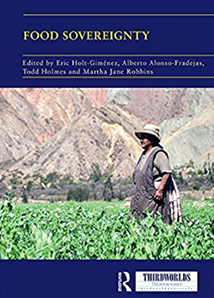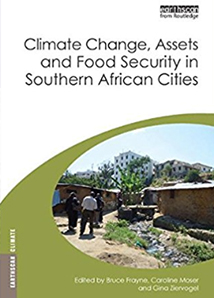New Books
2018 Global Food Policy Report

- Author: International Food Policy Research Institute
- Publisher: International Food Policy Research Institute
- Publication Date: March 20, 2018
Purchase
Food Sovereignty: Convergence and Contradictions, Condition and Challenges (ThirdWorlds)

- Author: Eric Holt-Gimenez,Alberto Alonso-Fradejas, Todd Holmes, Martha Jane Robbins
- Publisher: Routledge
- Publication Date: January 2, 2018
Purchase
Climate Change, Assets and Food Security in Southern African Cities

- Author: Bruce Frayne,Caroline Moser, Gina Ziervogel
- Publisher: Routledge
- Publication Date: December 23, 2017
The authors explore the urban climate change nexus linking asset adaptation, climate change science and food security through several case study cities. These include Cape Town, George and Khara Hais (South Africa), Lusaka (Zambia), Maputo (Mozambique), Mombasa (Kenya) and Harare (Zimbabwe). The results shed light on how this nexus might be explored from different perspectives, both theoretical and practical, in order to plan for a more resilient future.
Climate Change, Assets and Food Security in Southern African Cities comprises ten chapters which focus on southern African cities, with each chapter written by highly experienced academics, research-focused practitioners and professional planners. Although the book concentrates on southern African cities, the insights which are presented can be used to understand other urban centres in low and middle-income countries outside of this region and around the world.
Purchase

